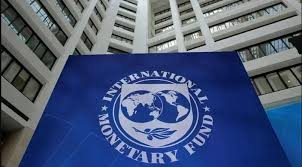The final round of talks between Pakistan and the International Monetary Fund (IMF) is set to end today. The government has successfully convinced the IMF that there will be no mini-budget before June. This assurance helped ease concerns of additional tax burdens for now.
Officials at the Finance Ministry stated that the IMF has shown satisfaction with Pakistan’s economic indicators. As a result, the next $1 billion installment under the IMF loan programme is expected to be released soon. The funding comes from a total $7 billion assistance package that Pakistan is currently under.
Sources revealed that Nathan Porter, who leads the IMF delegation, held detailed discussions with Finance Minister Muhammad Aurangzeb. The meetings focused on the economic performance in the first half of the fiscal year. The two sides also discussed policy targets for the coming months.
The IMF loan programme has placed special emphasis on broadening the tax base. It wants more contributions from the retail, wholesale, real estate, and dealership sectors. IMF officials stressed the need to bring more businesses into the tax system to ensure long-term revenue growth.
Tax Reforms and Economic Goals
During the meetings, the Federal Board of Revenue (FBR) shared progress on increasing the tax-to-GDP ratio. This development allowed the IMF to lower its revenue target from Rs 12,970 billion to Rs 12,370 billion. This adjustment helped prevent a mini-budget, a major concern for both the government and citizens.
However, the IMF has insisted on removing tax breaks for the wealthy elite. The Fund wants big landlords to be taxed under the agricultural income framework. Similarly, it has demanded that large industrialists pay a super tax on high incomes. Though the government has already made legal changes in this area, the IMF urged faster implementation.
Sources disclosed that the government suggested a cut in tax rates for the real estate sector. The aim is to prevent capital flight and retain local investment. Officials also assured the IMF that the registration of traders will continue. Expanding the tax base in the services sector, especially among professionals, remains a top priority. The FBR has provided a written pledge to the IMF on this commitment.
Privatization and Structural Changes
Privatization is another key part of the IMF loan programme. The IMF is pushing for the swift privatization of loss-making state-owned enterprises (SOEs). This includes the Pakistan International Airlines (PIA) and power distribution companies (DISCOs).
Sources within the Finance Ministry said that privatization plans for three DISCOs—Islamabad, Faisalabad, and Gujranwala—have already been submitted. Plans for Multan, Lahore, and Hyderabad Electric Companies will follow in the next phase.
The IMF has also called for stricter implementation of the Point of Sale (POS) and Track & Trace systems. These tools are crucial in reducing tax evasion, especially in the retail sector. The government has agreed to enhance enforcement measures to ensure compliance.
Final Review and Next Steps
As policy-level discussions near completion, the IMF will now prepare its final review report. This document will be presented to the Fund’s Executive Board before the release of the next $1 billion under the IMF loan programme.
Despite a few remaining concerns, the government remains hopeful of securing the upcoming tranche. Online consultations between Pakistan and the IMF will continue even after the team departs. This ongoing dialogue will help address unresolved issues.
The discussions will formally conclude today with an Iftar dinner attended by IMF and government officials. Final recommendations will be drafted after the dinner.
Main Demands of the IMF
Throughout the negotiation process, the IMF loan programme focused on the following demands:
- Ending tax exemptions for high-income groups.
- Expanding the tax network to include retail, wholesale, and real estate sectors.
- Accelerating the privatization of SOEs, including PIA and DISCOs.
- Reducing tax benefits on solar panels and electric vehicles, which the IMF argues help only the affluent class.
Looking ahead, Pakistan’s economic growth is expected to exceed 4% in the next fiscal year. Inflation is likely to stay in single digits. However, the country’s external financial needs will still cross $20 billion. The government must implement reforms quickly to maintain economic stability while meeting IMF conditions under the loan programme.
An official IMF statement is expected soon. This statement will outline the future path for Pakistan’s economic policies.


